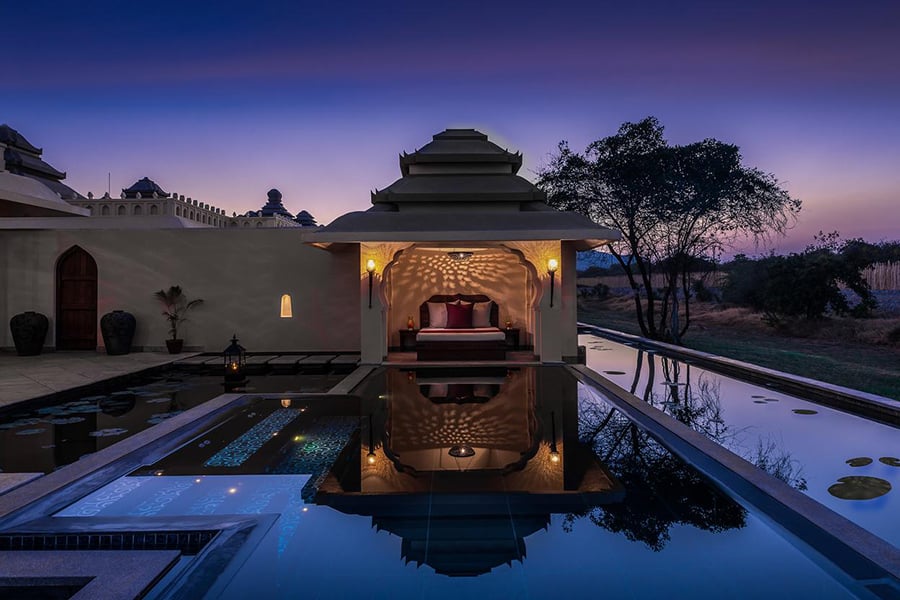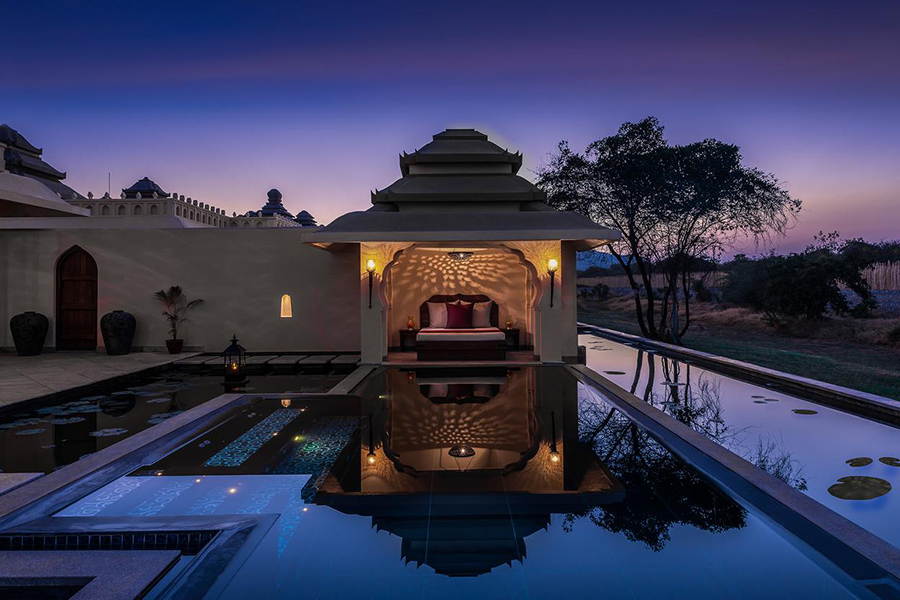
India, a land of vibrant contrasts, captivating history, and breathtaking landscapes, is a dream destination for travelers seeking adventure, cultural immersion, and spiritual awakening. From the snow-capped Himalayas to the sun-kissed beaches of Goa, India offers an unparalleled diversity of experiences. This article serves as your comprehensive guide to navigating this incredible country, focusing on the best hotels that provide exceptional comfort and access to the nation’s top attractions, while also offering crucial travel tips, accommodation options, transportation insights, and the optimal time to plan your visit.
Top Attractions: A Tapestry of Wonders
India’s allure lies in its rich tapestry of attractions, each offering a unique glimpse into its multifaceted soul. Here are some must-see destinations:

Related Articles about A Grand Tour of India: Unveiling the Best Hotels and Experiences:
- Vancouver: A Symphony of Nature and Urbanity – Your Ultimate Guide to the Emerald City
- Tokyo: A Metropolis of Enchantment – Your Ultimate Travel Guide
- Malaysia’s Crown Jewels: A Guide to the Nation’s Finest Hotels and Unforgettable Experiences
- Russia: A Timeless Tapestry of History, Culture, and Adventure
- A Traveler’s Guide to Finland: Land of a Thousand Lakes and Endless Adventures
-
The Taj Mahal, Agra: An eternal symbol of love, the Taj Mahal is a breathtaking ivory-white marble mausoleum commissioned by Mughal emperor Shah Jahan in memory of his wife Mumtaz Mahal. Its intricate carvings, symmetrical design, and serene ambiance make it an unforgettable experience.
-
Rajasthan: The Land of Kings: Explore the majestic forts and palaces of Rajasthan, including the Amber Fort in Jaipur, the Mehrangarh Fort in Jodhpur, and the City Palace in Udaipur. Immerse yourself in the vibrant culture, traditional music, and delectable cuisine of this regal state.
-
Kerala: God’s Own Country: Discover the tranquil backwaters of Kerala by houseboat, cruise through lush green landscapes, and witness the traditional Kathakali dance performances. Relax on the pristine beaches of Kovalam and Varkala, and indulge in Ayurvedic treatments.

-
Varanasi: The Spiritual Capital: Witness the ancient rituals and traditions of Varanasi, one of the oldest living cities in the world. Take a boat ride on the Ganges River at dawn, observe the cremation ceremonies at the ghats, and experience the spiritual energy that permeates the city.
-
Goa: The Party Paradise: Enjoy the sun, sand, and sea on the beautiful beaches of Goa. Explore the Portuguese-influenced architecture of Old Goa, indulge in water sports, and experience the vibrant nightlife.
-
The Himalayas: A Majestic Range: Embark on trekking adventures in the Himalayas, explore the serene monasteries of Ladakh, and witness the breathtaking views of snow-capped peaks. Popular destinations include Shimla, Manali, and Dharamshala.
-
Khajuraho: Temples of Love: Marvel at the intricate sculptures and erotic carvings of the Khajuraho temples, a UNESCO World Heritage Site. These temples are renowned for their artistic expression and depiction of various aspects of life.
A Journey Through History: Echoes of Empires
India’s history is a captivating narrative of empires, conquests, and cultural exchange. From the Indus Valley Civilization to the British Raj, each era has left its indelible mark on the country’s landscape and heritage.
-
The Mughal Empire: The Mughals, who ruled India from the 16th to the 18th centuries, were great patrons of art, architecture, and culture. Their legacy can be seen in iconic monuments like the Taj Mahal, Humayun’s Tomb, and Fatehpur Sikri.
-
The British Raj: The British East India Company’s rule over India had a profound impact on the country’s political, economic, and social landscape. Explore colonial-era buildings in cities like Kolkata, Mumbai, and Chennai.
-
Ancient Civilizations: Discover the ruins of ancient cities like Harappa and Mohenjo-daro, which flourished during the Indus Valley Civilization. These archaeological sites offer insights into the advanced urban planning and cultural practices of this ancient civilization.
-
Religious Influences: India is the birthplace of Hinduism, Buddhism, Jainism, and Sikhism. Explore the sacred sites and temples associated with these religions, such as the Golden Temple in Amritsar, the Bodhi Tree in Bodh Gaya, and the Jain temples of Mount Abu.
Travel Tips for a Smooth Journey
-
Visa: Ensure you have the necessary visa for India before your trip. Apply well in advance to avoid any last-minute complications.
-
Health: Consult your doctor about necessary vaccinations and health precautions. Carry a first-aid kit with essential medications.
-
Currency: The Indian currency is the Rupee (INR). Exchange your currency at authorized banks or exchange offices. Credit cards are widely accepted in major cities and tourist destinations.
-
Dress Code: Dress modestly, especially when visiting religious sites. Cover your shoulders and knees as a sign of respect.
-
Bargaining: Bargaining is common in markets and with vendors. Negotiate prices before making a purchase.
-
Transportation: Plan your transportation in advance. Consider hiring a car with a driver for longer journeys.
-
Food: Be cautious about street food. Choose reputable restaurants and bottled water to avoid stomach problems.
-
Language: Hindi is the official language of India, but English is widely spoken in tourist areas.
-
Safety: Be aware of your surroundings and take precautions against petty theft. Avoid walking alone at night in unfamiliar areas.
Accommodation Options: From Palaces to Boutique Stays
India offers a wide range of accommodation options to suit every budget and preference. Here are some of the best hotels that provide exceptional comfort and service:
-
Luxury Hotels:
-
The Taj Mahal Palace, Mumbai: An iconic landmark, this historic hotel offers stunning views of the Gateway of India and Arabian Sea.
-
The Oberoi Udaivilas, Udaipur: A luxurious palace-style hotel set on the banks of Lake Pichola, offering breathtaking views and impeccable service.
-
Amanbagh, Rajasthan: A tranquil oasis nestled in the Aravalli Hills, offering a luxurious retreat amidst nature.
-
The Leela Palace New Delhi: A grand hotel offering opulent rooms, exquisite dining options, and world-class amenities.
-
The Oberoi Amarvilas, Agra: Located just 600 meters from the Taj Mahal, this hotel offers unparalleled views of the iconic monument.
-
-
Boutique Hotels:
-
RAAS Jodhpur: A beautifully restored heritage hotel in the heart of Jodhpur, offering stunning views of the Mehrangarh Fort.
-
Glenburn Tea Estate, Darjeeling: A charming tea estate offering a tranquil retreat amidst lush green tea plantations.
-
The Bangala, Karaikudi: A heritage hotel showcasing the unique architecture and culture of the Chettinad region.
-
Neemrana Fort-Palace, Rajasthan: A beautifully restored fort-palace offering a unique and immersive experience.
-
Brunton Boatyard, Kochi: A colonial-era hotel located on the waterfront, offering a glimpse into Kochi’s rich history.
-
-
Homestays and Guesthouses:
- For a more authentic and budget-friendly experience, consider staying in homestays or guesthouses. These options offer a chance to interact with locals and learn about their culture.
Transportation: Navigating the Diverse Landscape
India offers a variety of transportation options, each with its own advantages and disadvantages.
-
Flights: Domestic flights are the most convenient way to travel long distances. Major cities have well-connected airports.
-
Trains: The Indian Railways is one of the largest railway networks in the world. Trains are a popular and affordable way to travel, but can be crowded and delayed.
-
Buses: Buses are a cost-effective option for traveling to smaller towns and villages. However, they can be uncomfortable and time-consuming.
-
Taxis and Auto-rickshaws: Taxis and auto-rickshaws are readily available in most cities. Negotiate the fare before starting your journey.
-
Rental Cars: Renting a car with a driver is a convenient option for exploring specific regions.
Best Time to Visit: Weathering the Seasons
The best time to visit India depends on the region you plan to explore.
-
October to March: This is the peak tourist season, with pleasant weather in most parts of the country.
-
April to June: Summers can be extremely hot, especially in the northern plains. However, this is a good time to visit hill stations like Shimla and Manali.
-
July to September: The monsoon season brings heavy rainfall to many parts of the country. However, this is a good time to visit Kerala and other regions that come alive during the monsoon.
Conclusion: An Unforgettable Journey Awaits
India is a land of endless possibilities, offering a kaleidoscope of experiences that will leave you spellbound. By choosing the right accommodation, planning your transportation carefully, and being mindful of the best time to visit, you can create an unforgettable journey that will enrich your soul and broaden your horizons. So, pack your bags, embrace the vibrant culture, and prepare to be amazed by the magic of India. From the regal splendor of Rajasthan to the serene backwaters of Kerala, and the spiritual aura of Varanasi, India promises an adventure of a lifetime. Enjoy your grand tour of this incredible land!





